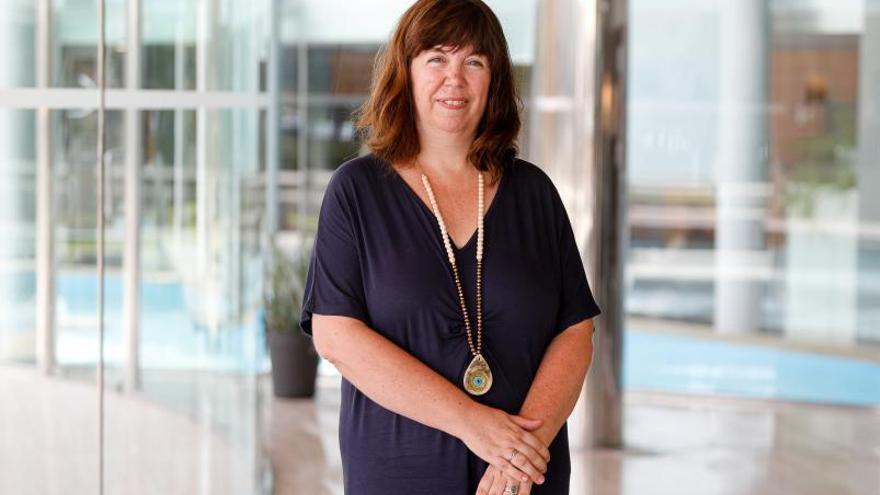Vicky Serra Sutton, a 48-year-old sociologist from Ibiza, arrives on the island to enjoy a family vacation at almost the same time as the results of the study on persistent covid that she co-led together with psychiatrist Toni Serrano, from the Sant Joan de Déu Health Park, have been published. The research, in which they have defined this disease, was commissioned by the Ministry of Health to the Ministry of Science and Innovation and in turn, the Agència d’Avaluació i Qualitat Sanitària de Catalunya (Aquas), where the Ibizan works. The study was carried out through the Consorcio Centro de Investigación Biomédica en Red (Ciber) of the Instituto de Salud Carlos III and the results can be consulted on the institution’s website. In reality, Vicky Serra wanted to be a journalist, but she was recommended to study sociology “because it was also about research and writing”. Her field has always been health, which she is passionate about, she confesses.
This first phase of the study is to define persistent covid. What is it?
Covid is a new health problem for which there is no scientific evidence and that is why we were commissioned, to find out more about what it is. As there is no quantitative data, we asked people who work on the subject, experts and patients, and we reviewed the literature. What is persistent covid according to this study? Well, it is a multivariate group of symptoms that some people maintain after an episode of acute infection and that cannot be attributed to other causes.
As persistent covid is defined, a different diagnosis comes to mind.
Yes, they are varied symptoms of persistent covid: systemic, respiratory, neurocognitive, musculoskeletal… And they should not be associated with other causes, i.e. the patient should not have previous respiratory, cardiovascular or psychological problems to which these symptoms that occur after having an acute covid phase can be attributed.
I had covid and it has taken me a year to recover my reading rhythm because I could not concentrate. Would this be an example?
Among the symptoms is the group of neurocognitive symptoms, which are the most common, together with fatigue. Difficulty concentrating or memory problems would be neurocognitive symptoms. Another of the best known is the loss of smell. What we have done in this part of the research is to reach a consensus on which are the most frequent, how long they last and the impact they have on day-to-day life. We need to continue studying. Above all, we have to investigate what causes this to happen to one patient and not to others. It may be due to other factors. This difficulty in concentrating may be due to the anxiety you have experienced or to stress, not to the virus itself.
What duration of these symptoms are you talking? Short term? Forever?
To call it persistent covid, the consensus says that this means that these symptoms are maintained beyond three months after acute infection. It is somewhat aligned with the World Health Organization (WHO), which speaks of two months, or with studies by the National Institute for Health and Care Excellence (NICE) in the United Kingdom, which speaks of three months. Can it last forever?
Is it necessary to study how long persistent covid can last?
More than how long it can last, I think it is important to advance in what makes a person maintain these symptoms for more than three months while others do not. This second part is very important. It is necessary to see the characteristics, age and gender factors that make these symptoms last for months. Or to know if there are previous health problems that can interact with the virus and trigger a more complex picture. Sometimes they fluctuate, you have fatigue one month, for example, you seem to be fine again and they come back. It is important to keep improving.
I was also talking about the impact on day-to-day life.
Yes, this has to do with assessing quality of life, being more holistic, measuring the impact on daily functioning: if you can do your normal life, work, interact socially…. Measuring that impact will provide information to the health professionals who have to make a diagnosis. We need to go much deeper into the biological factors. All the experts from all the disciplines who have participated, as well as the patients, support the measurement of the impact of covid on quality of life.
For the full article, please visit Diario de Ibiza website here.


 “It is necessary to investigate what makes one person have persistent covid and others not”
“It is necessary to investigate what makes one person have persistent covid and others not”